
James McNeill Whistler was an American artist, trained in Paris and famed for his London nocturnes, yet his connections to Scotland ran surprisingly deep. He only visited the country once as a teenager, yet he was embraced as one of their own. The Glasgow Boys called him “The Master” and petitioned for the Corporation of Glasgow to buy his Arrangement in Grey and Black No. 2: Portrait of Thomas Carlyle, becoming the first public collection to own Whistler's work. The University of Glasgow, meanwhile, gave him an honorary doctorate and is now home to the world’s largest public display of the artist’s work, comprising 80 oil paintings and more than 1,700 works on paper, as well as almost 300 artworks made by his late wife Beatrix, all thanks to a bequest from his sister-in-law Rosalind.
The origin of these Celtic connections is the subject of one of Whistler’s most famous paintings, Arrangement in Grey and Black No. 1: Portrait of the Artist’s Mother. Anna Matilda McNeill Whistler was born in North Carolina, yet also had Scottish ancestry, being descended from the Highland McNeills of Barra. “[James] would accentuate these aspects of his lineage for exotic effect after becoming an expatriate,” wrote his biographer, Lisa N Peters.
That maternal portrait was painted while Whistler was living with his mother in London’s Chelsea. Although it is now celebrated as a “Victorian Mona Lisa”, it came narrowly close to being refused by the Royal Academy of Art’s annual exhibition in 1872, apparently on the grounds of it being presented as an “arrangement” not a portrait. Nevertheless, it was a sign that the artist’s focus was shifting.
Bu hikaye Artists & Illustrators dergisinin September 2021 sayısından alınmıştır.
Start your 7-day Magzter GOLD free trial to access thousands of curated premium stories, and 9,000+ magazines and newspapers.
Already a subscriber ? Giriş Yap
Bu hikaye Artists & Illustrators dergisinin September 2021 sayısından alınmıştır.
Start your 7-day Magzter GOLD free trial to access thousands of curated premium stories, and 9,000+ magazines and newspapers.
Already a subscriber? Giriş Yap

Still life IN 3 HOURS
Former BP Portrait Award runner-up FELICIA FORTE guides you through a simple, structured approach to painting alla prima that tackles dark, average and light colours in turn
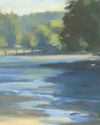
Movement in composition
Through an analysis of three masterworks, landscape painter and noted author MITCHELL ALBALA shows how you can animate landscape composition with movement
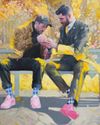
Shane Berkery
The Irish-Japanese artist talks to REBECCA BRADBURY about the innovative concepts and original colour combinations he brings to his figurative oil paintings from his Dublin garden studio
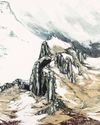
The Working Artist
Something old, something new... Our columnist LAURA BOSWELL has expert advice for balancing fresh ideas with completing half-finished work
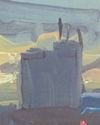
Washes AND GLAZES
Art Academy’s ROB PEPPER introduces an in-depth guide to incorporating various techniques into your next masterpiece. Artwork by STAN MILLER, CHRIS ROBINSON and MICHELE ILLING
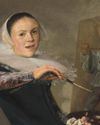
Hands
LAURA SMITH continues her new four-part series, which encourages you to draw elements of old master paintings, and this month’s focus is on capturing hands
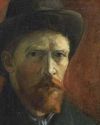
Vincent van Gogh
To celebrate The Courtauld’s forthcoming landmark display of the troubled Dutch master’s self-portraits, STEVE PILL looks at the stories behind 10 of the most dramatic works on display
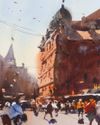
BRING THE drama
Join international watercolour maestro ALVARO CASTAGNET in London’s West End to paint a dramatic street scene
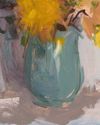
Serena Rowe
The Scottish painter tells STEVE PILL why time is precious, why emotional responses to colour are useful, and how she finds focus every day with the help of her studio wall

Bill Jacklin
Chatting over Zoom as he recovers from appendicitis, the Royal Academician tells STEVE PILL about classic scrapes in New York and his recent experiments with illustration